12 July 2025
Let’s be honest. When was the last time you used the Pythagorean Theorem in real life? Yeah, exactly. It’s not that these concepts are useless (math nerds, don’t come for me), but the truth is — the world has changed. We’re not just memorizing facts anymore. We’re solving problems, working in teams, Googling everything, and navigating the wild jungle that is the modern job market. So how do we prepare students for that?
Enter: Project-Based Learning (cue superhero music).
It’s more than just a fancy buzzword. It’s an educational approach that says, “Hey, what if learning was actually...useful?” And guess what? It’s exactly what we need to build 21st-century skills.

What Are 21st-Century Skills Anyway?
Before we dive into how project-based learning (PBL, for all you acronym aficionados) works its magic, let’s unpack what these so-called 21st-century skills actually are.The Big Three: The 4Cs (Wait, That’s Four, But Go With It)
These are the golden skills everyone yaps about:- Critical Thinking – Can you solve a problem without shouting “I give up” after two minutes?
- Creativity – Can you think outside the box, or better yet, throw the box away?
- Collaboration – Can you work with others without plotting their downfall during group projects?
- Communication – Can you express your ideas clearly, confidently, and without texting “lol” in an email?
Of course, throw in digital literacy, flexibility, leadership, initiative, and all that good stuff too.
Now, where in the traditional school model do we learn these? Sitting still, memorizing facts, bubbling in standardized test sheets… yeah, not quite.
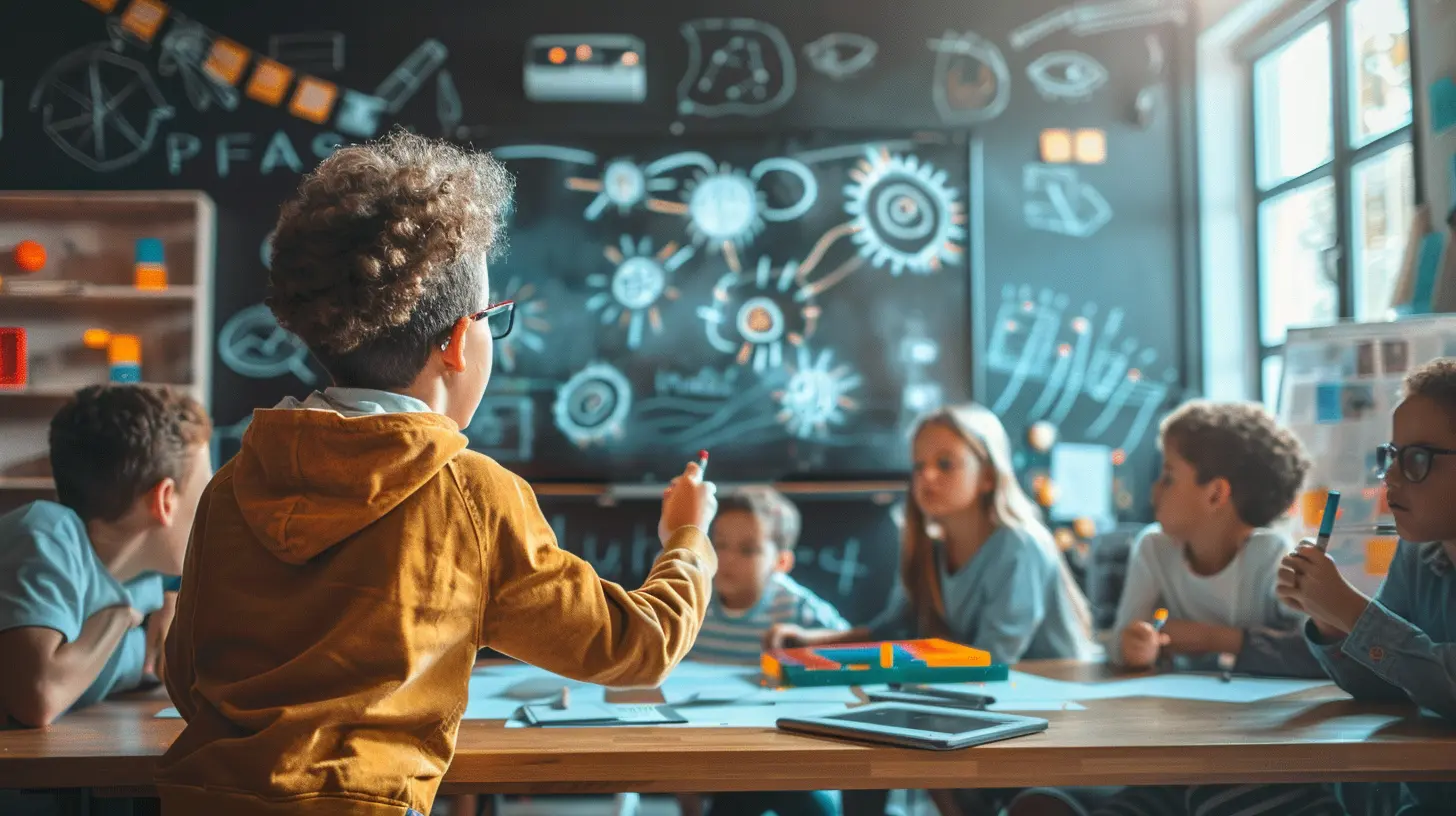
What Is Project-Based Learning (And Why Should We Care)?
Project-Based Learning is like education's cooler, more practical cousin. Instead of lectures and textbooks, students dive headfirst into real-world problems, working on extended projects that require actual brainpower, collaboration, and creativity.Think Shark Tank meets group science fair — but way better organized and (hopefully) with fewer glitter explosions.
PBL in Action: Not Just an Art Project
Let me paint you a picture (get it? Art? No? Moving on…). Say a group of students is tasked with figuring out how to reduce the school’s carbon footprint. They research energy usage, interview staff, draft proposals, and present their solutions to the principal.Boom. They just covered science, math, writing, speaking, teamwork, and decision-making — all in one go.

Why Project-Based Learning Builds 21st-Century Skills Like a Boss
Let’s break it down, point by point. No fluff, just the juicy stuff.1. Critical Thinking: Not Just for Nerds
In traditional classrooms, students usually get a problem with a single right answer. In PBL? Problems are messy. Answers are complex. There’s no cheat code, no back-of-the-book solution.Students have to analyze, evaluate, make decisions, and pivot when things don’t go their way. In other words, they have to think like actual human beings who solve real-life problems.
And let’s be real — if you’ve ever tried assembling IKEA furniture without losing your mind, you’ll appreciate this skill.
2. Communication: Say It Loud, Say It Proud
Ever tried to work on a team project where one person ghosts the group, one takes over everything, and no one knows what’s going on?PBL forces students to communicate. They have to pitch ideas, write reports, give presentations, and (wait for it) actually listen to each other. These are the soft skills bosses drool over, and they don’t come from quietly filling out worksheets.
3. Collaboration: Group Work Without Group Rage
We’ve all had a group project nightmare. But in PBL, collaboration isn’t punishment — it’s practice for the real world. Students take on roles, solve conflicts, and rely on each other to succeed.It’s like Survivor meets startup culture — minus the island, stress eating, and tribal councils.
4. Creativity: Because Robots Can’t Do Everything
Yes, ChatGPT can draft a haiku about burritos, but can it invent a new sustainable energy source using recycled pizza boxes? That’s where creativity comes in.In PBL, students dream up wild ideas, test them, fail, try again, and pivot when plans nosedive. That freedom to explore unlocks innovative thinking — something we kinda need in the ever-changing, tech-saturated, AI-obsessed world we live in.
5. Self-Management: AKA Not Forgetting Deadlines
PBL teaches kids to plan, organize, and (gasp!) manage their own time. Teachers take on more of a coaching role, and learners become, well, learners — not just homework machines.Deadlines? Check. Accountability? Double-check. Life skills? Boom.
6. Real-World Relevance: Because “When Will I Ever Use This?” Is a Legit Question
PBL shuts down that classic student complaint faster than you can say “algebra.” Projects are tied to real-world problems, often tapping into local community issues or global trends.It’s like giving students a job preview instead of just another test score. Useful? You bet.
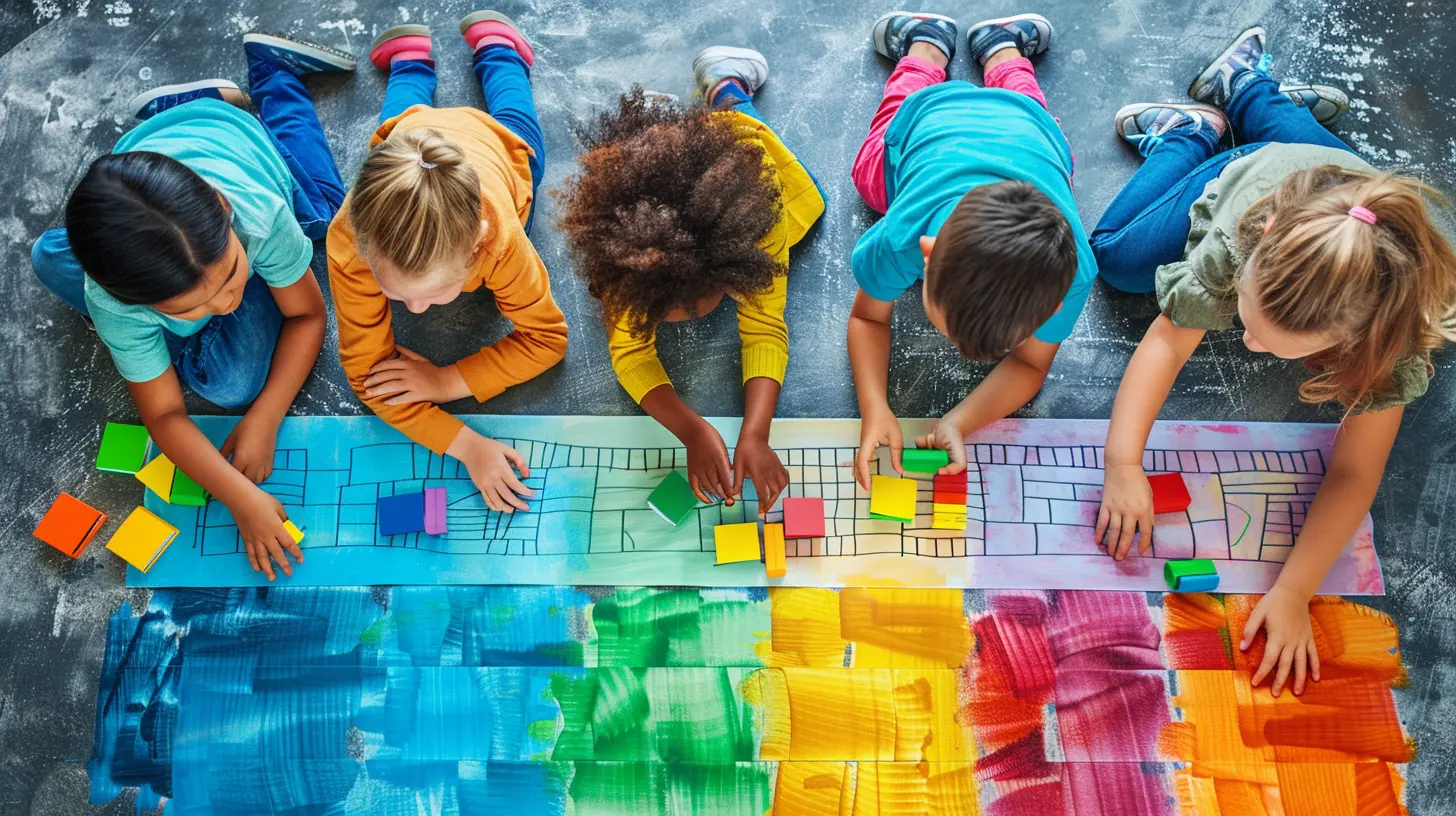
Busting the Myths: "But Isn’t PBL Just Arts and Crafts?"
Sigh. Time to squash those misconceptions.PBL isn’t just poster boards and glitter glue. It’s rigorous. It’s standards-based. And it’s aligned with deep learning outcomes.
Yes, students might be using markers. But they’re also researching, analyzing data, presenting findings, and defending arguments. That’s not fluff — that’s fire.
Teachers: The MVPs of Project-Based Learning
Now, let’s give a slow clap for the real heroes — teachers. In the PBL world, they become facilitators, guides, and mentors.They design meaningful projects, balance freedom with structure, coach students through challenges, and somehow manage to keep the whole thing from descending into chaos.
It's like juggling flaming swords while riding a unicycle... on a tightrope... blindfolded.
So… What Does a Good PBL Project Look Like?
Glad you asked, imaginary reader.✅ It’s Rooted in Real-World Issues
No abstract busywork here. It connects to something meaningful, whether it’s climate change, public health, or building a better school cafeteria menu (yes, please).✅ It’s Student-Driven
Students make choices, ask questions, and shape the direction. They’re not just following a script — they’re writing it.✅ It Has a Tangible Outcome
Every project leads to a final product or presentation. It’s not just a grade; it’s a goal.✅ There’s a Lot of Reflection
Students think about what they did, how they did it, and how they grew. It’s like emotional and cognitive digestion. (Sorry, weird analogy.)Examples That’ll Make You Say “Why Didn’t We Do That in School?”
- “Design a Tiny House” – Students use math, architecture, and sustainability to design a livable, affordable home.- “Build a Public Awareness Campaign” – Tackling mental health, bullying, or climate change through multimedia.
- “Revamp Local Transportation” – Solve real problems in their own city with data and creativity.
Could your dusty old textbook do that? Didn’t think so.
What About Assessment?
Oh, you mean the part where kids start sweating?Assessment in PBL isn’t just tests and quizzes. It's rubrics, peer feedback, presentations, and portfolios. It’s holistic. It’s authentic. If traditional assessment is a pop quiz, PBL assessment is American Idol meets TED Talk (minus Simon Cowell, thankfully).
Getting Started with PBL (Without Losing Your Mind)
If you’re a teacher thinking, “This sounds cool, but where do I even start without bursting into flames?” — chill. You don’t have to flip your classroom overnight.Here’s a mini-starter pack:
1. Start with a question – Something big, open-ended, and real.
2. Frame a plan – Timeline, checkpoints, group roles.
3. Coach, don’t control – Let students take the wheel (but keep your foot near the brake, just in case).
4. Reflect, reflect, reflect – Trust me, one round of “what worked and what didn’t” can work miracles.
The Future Looks Like This
The world is changing faster than ever. Jobs today might not exist tomorrow. Technology is evolving like a caffeinated rabbit. And students? They’re not just learners — they’re future thinkers, builders, and changemakers.Project-Based Learning isn’t just a method. It’s a mindset. One that says, “Let’s prepare kids not just to pass tests, but to crush problems life throws at them.”
And frankly, that’s what education should’ve been all along.





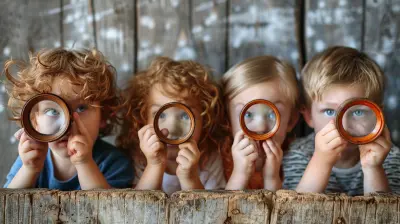
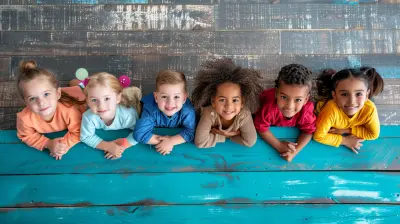
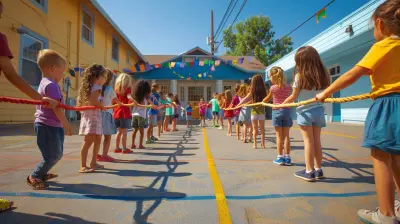
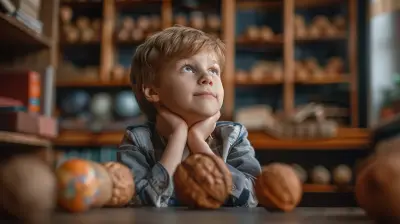
Ranger Roth
Project-Based Learning: Skills for the real world!
December 26, 2025 at 11:41 AM